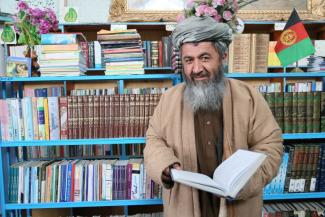Theology
Islamic values

Respect for creation is another central theme in the Koran. The underlying theological principle in this case is tauḥīd (the unity of God). According to the Koran, everything has been created by and strives to return to God, thereby giving meaning to human existence. In addition to the emphasis on the unity of God in a monotheistic sense, the unity of God is also embodied in creation. The theological principle of creation is closely connected to the principle of responsibility. The creation principle assumes that there is a harmonious state of nature (fiṭra) for both people and creation, directed to God.
This harmony has been dramatically altered as a result of continuous industrial and technical development. Despite the aforementioned principle of unity, human beings are thought of as fundamentally different from other life forms because of their capacity for reason. People are aware of the linearity of time and are therefore responsible for carrying out the role of earthly vicegerents for God (Ḫalīfa). They are also responsible for promoting civilisation. Thanks to their cognitive faculties, human beings are capable of rising above their material needs. This capability is the source of value judgments, the ability to make moral decisions and ultimately of values and standards. The theological treatise of mīzān (balance) calls for moderation and balance. It can be understood as a holistic principle aimed at achieving the harmony of the whole.
Islamic scholars refer to these and other theological principles to demonstrate the compatibility between Islam and living a sustainable life. An example of these efforts is the Jeddah Declaration (2000), which was passed by Islamic legal experts, scientists and representatives of Islamic countries at the first world forum on the environment from an Islamic perspective. It maintains that sustainable development is Islamic as long as it does not destroy the balance of God’s creation. (nf/un)










